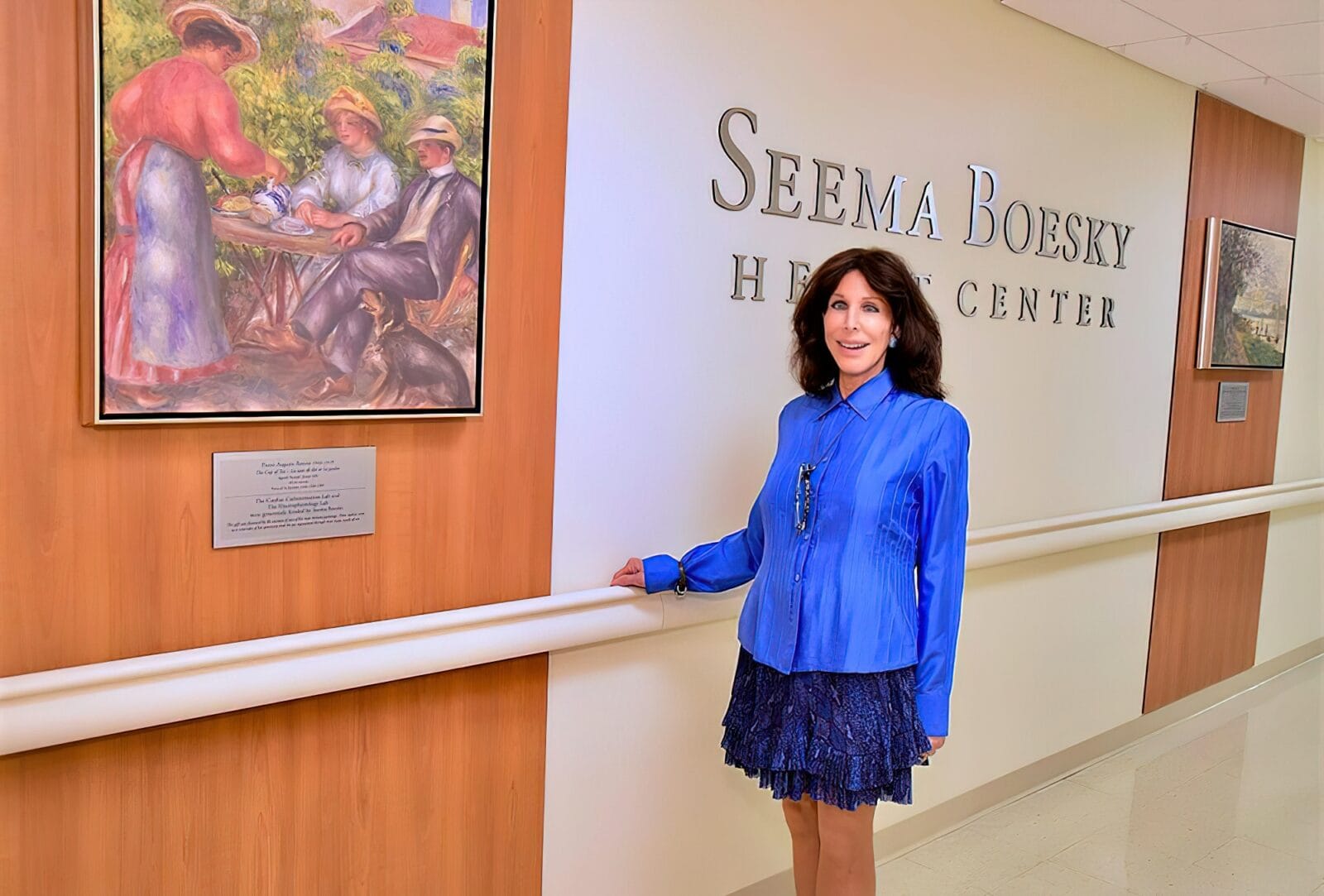$20 million gift to Wayne State from Seema Boesky establishes the Ben L. Silberstein Institute for Brain Health

Wayne State University announced a $20 million gift — one of the largest individual gifts in the university’s history — from renowned philanthropist Seema Boesky to establish the Ben L. Silberstein Institute for Brain Health.
The institute will be named in honor of Boesky’s late father, who was a Detroit real estate attorney and hotel magnate. With Boesky’s transformational investment, neuroscience innovation will be synonymous with the Ben L. Silberstein Institute for Brain Health, which will be located inside the Wayne State University Integrative Biosciences Center at 6135 Woodward in Detroit.
Under the guidance of Director David Rosenberg, M.D., chair of the WSU Department of Psychiatry and Behavioral Neurosciences at the School of Medicine, the Ben L. Silberstein Institute for Brain Health will advance understanding of the brain’s structure, chemistry and function as it relates to both brain illness and the promotion of brain health. The institute will promote team interactional science to accelerate and fast track neurodiagnostic and treatment advances for real-world childhood and adult brain disorders such as addiction, chronic pain, depression and bipolar disorder, anxiety, obsessive-compulsive disorder, post-traumatic stress disorder, brain injury and trauma, Parkinson’s disease, and schizophrenia, among others. The institute aspires to be a leader in brain science that inspires the next generation of students and researchers to improve the health and care of individuals affected by neurological or psychiatric disorders or injuries of the nervous system.
“Seema Boesky has been instrumental in positioning our institute for brain health as one of the best in the nation,” Dr. Rosenberg said. “With this generous gift, she is ensuring our rise to preeminence as we educate the world’s next medical leaders for generations to come and show everyone that the Ben L. Silberstein Institute for Brain Health is where the action is.
“The Ben L. Silberstein Institute for Brain Health will bring about new information and clarify processes and biomarkers that underlie disease behavior, revealing the mysteries of our brains,” he added. “Outcomes will allow doctors, scientists and biomedical investigators to intervene and prevent pain, illness and other health challenges in unprecedented ways, improving health outcomes.”
Boesky’s gift will support cross-disciplinary collaborations among Wayne State’s schools and colleges as well as across institutions, while dramatically advancing researchers’ understanding of brain disorders, allowing for the creation of new interventions and treatment protocols that will improve the quality of life for patients and their families.
“This extraordinary gift by Seema Boesky will change the lives of thousands of people for generations to come,” said David Ripple, vice president of Development and Alumni Affairs, and president of the Wayne State University Foundation. “It’s a historic contribution to Wayne State University that will positively impact our students, faculty and region for years to come and pave the way for the institute to continue to be a leader in translational neurosciences and inspire students and researchers to improve the health and care of individuals affected by psychiatric and neurological disorders.”
The institute will leverage Wayne State’s existing research strengths, including top programs in addiction and pain biology, post-traumatic stress disorder and trauma neurobiology, child and adolescent psychiatry, and movement disorders such as Parkinson’s disease, bolstered by diverse intellectual expertise and access to enabling technologies and leading-edge biomedical imaging platforms. The institute will also include important components relevant to health equity and challenges related to brain and behavioral health in urban environments.
“Far too many individuals are struggling with chronic pain, addiction and other illnesses that have no proven cause, prevention or cure,” Wayne State President M. Roy Wilson said. “It is imperative that we gain better insights into the environmental, biological and behavioral factors behind these illnesses and their progression in order to develop successful treatment strategies. Institute research activity will be at the center of this work, guided by a particular focus on ushering in more targeted, personalized and precision care for a patient’s best outcome. Ms. Boesky’s philanthropic resources will position the Ben. L. Silberstein Institute for Brain Health for success, growth and true impact.”
Understanding the important role that she continues to play in addressing the needs of others, Boesky has a long, distinguished history of commitment to Wayne State University and the city of Detroit. She has funded the Gertrude Levin Endowed Chair in Addiction and Pain Biology for the Wayne State University School of Medicine with Mark Greenwald, Ph.D., professor of Psychiatry and Behavioral Neurosciences, who serves as the inaugural chair. She now wants to honor her father’s memory and embrace Detroit’s renaissance by establishing the Ben L. Silberstein Institute for Brain Health in the heart of her hometown.
“I was born to the greatest parents ever,” said Boesky, who graduated from Mumford High School on Detroit’s west side in 1957. “I had a beautiful childhood in Detroit, with parents who believed in service to others. My parents stressed that it was not enough to write a check. The people I admire most lift their pens when they can, then do the heavy lifting by dedicating their lives, time and hard work toward making other futures brighter.”
Wayne State is a nationally recognized urban public research university, offering more than 350 academic programs through 13 schools and colleges. Its mission is to create knowledge and prepare a diverse body of students to excel in an increasingly complex and global society. Reflecting its campus location in the city and its excellent international reputation, WSU boasts the most diverse student body among Michigan’s public universities. The university’s nearly 24,000 students come from nearly every state and nearly 80 countries to attend classes on the main campus in Detroit with 100 buildings over 200 acres, and at its six extension centers throughout Southeast Michigan.

